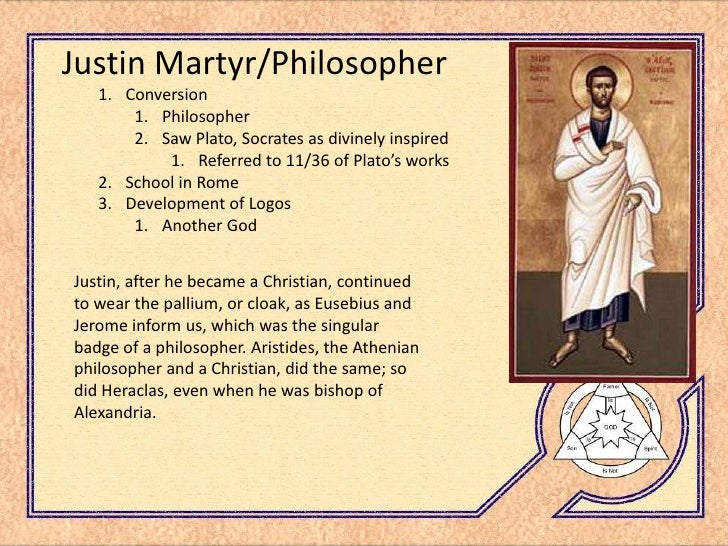Although Justin did not actually use the phrase "second God" (Gr. deuteros theos) in reference to Jesus, he did use a couple of equivalents: "another God and Lord" (Gr. theos kai kurios eteros), holding "second place" (Gr. deutera chōra). Here are the relevant references:
Then I replied, “I shall attempt to persuade you, since you have understood the Scriptures, [of the truth] of what I say, that there is, and that there is said to be, another God and Lord [theos kai kurios eteros] subject to the Maker of all things; who is also called an Angel, because He announces to men whatsoever the Maker of all things — above whom there is no other God — wishes to announce to them.” (Dialogue With Trypho, ch. LVI – emphasis added)
Our teacher of these things is Jesus Christ, who also was born for this purpose, and was crucified under Pontius Pilate, procurator of Judaea, in the times of Tiberius Caesar; and that we reasonably worship Him, having learned that He is the Son of the true God Himself, and holding Him in the second place [deutera chōra], and the prophetic Spirit in the third, we will prove. For they proclaim our madness to consist in this, that we give to a crucified man a place second to the unchangeable and eternal God, the Creator of all; for they do not discern the mystery that is herein, to which, as we make it plain to you, we pray you to give heed. (First Apology, ch. XIII (see also ch. LX) – emphasis added)Could Justin Martyr’s "original sin" of "another God and Lord", the continuing sin of Subordinationism, the crisis of Arianism, be cured with a pharmakon other that the Trinity? Which doctrine of the Trinity snapped the Hellenistic "chain of being", true, but at the cost of enveloping Christianity in esoteric mystery? Yes, it could. Marcellus of Ancyra had already started administering it at Nicea. Unfortunately the Arians raised their head, unfortunately the Eusebians took advantage of the confusion, to try and restore the previous subordinationist status quo, unfortunately the Cappadocians scoundrels, with the guilty assent of Athanasius, invented a remedy (the co-equal, co-eternal, tri-personal Trinity) that is worse than Justin Martyr’s "original sin", and which can only be put right by disposing of it for good.






Marcellus of Ancyra (died ca. 374 CE) is an enigmatic figure. He was a staunch Nicene, friend of Athanasius, defended by popes but also reviled as a heretic. Eusebius of Caesarea wrote two polemical tracts against Marcellus, Contra Marcellum and De Ecceiastica Theologia
Critics claimed that Marcellus believed that God was a Monad and only emerged as a Trinity for the sake of salvation (page 50). Marcellus was labelled as a Sabellian. Lienhard points out this comes from his opponents and not from Marcellus's own writings. In the end Lienhard affirms that Marcellus was guilty of a bit too much speculation (which he somewhat disavowed in the end) and some inconsistencies in his christological/theological terminology.
One of the useful aspects of Lienhard’s book is that it makes one understand better that the Arian controversy was much more complex than most textbooks let on.
Two passages from Lienhard’s book, in particular, are worth quoting.
What "other ways"? The options are not unlimited. The "Cappadocian settlement" is unsatisfactory (besides being un-scriptural), because it is an unstable compromise, permanently oscillating between tritheism and modalism. Then, what are the other options we are left with?